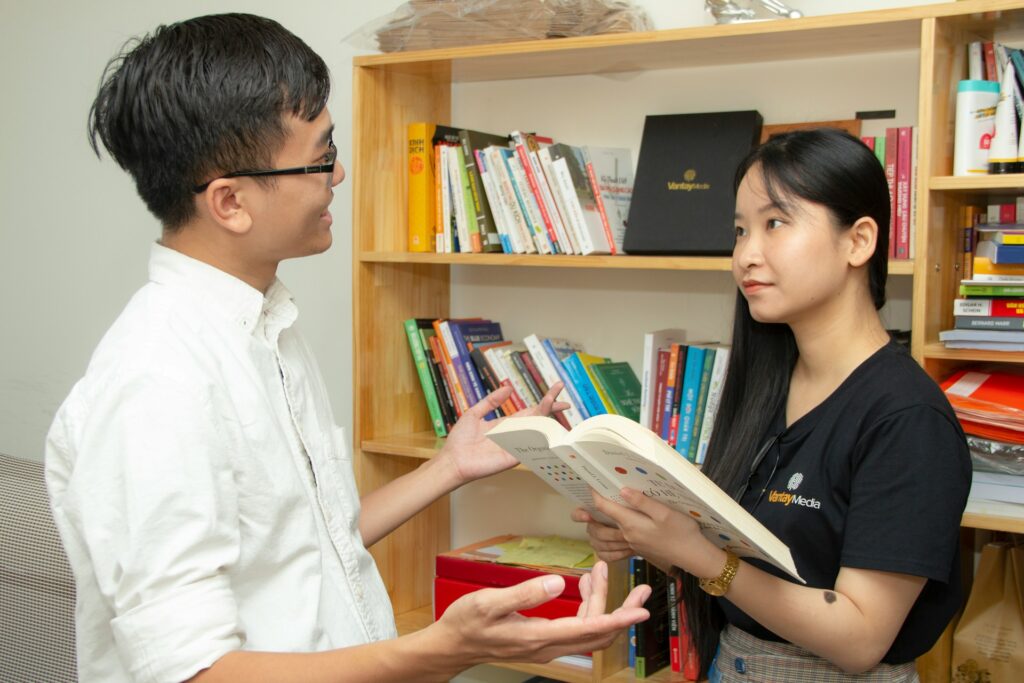Volunteering to Teach English
In today’s interconnected world, the ability to communicate in English has become a crucial skill, opening doors to educational, professional, and personal opportunities. By volunteering to teach English, we have the chance to make a profound impact on individuals and communities, empowering them to navigate the world with greater confidence and ease.
Teaching English as a volunteer is more than just imparting language skills; it is about fostering cross-cultural understanding, promoting social inclusion, and empowering individuals to reach their full potential. Whether it’s working with children in underserved communities or assisting adult learners in their quest for professional advancement, the role of the volunteer English teacher is truly invaluable.
Through my own experiences, I have seen how the act of volunteering to teach English can inspire personal growth, strengthen community ties, and create lasting positive change. It is a calling that extends beyond the classroom, touching the lives of both the teacher and the learner in profound and meaningful ways.
The rewards of volunteering to teach English
Volunteering to teach English is a deeply rewarding experience that transcends the traditional boundaries of the classroom. As a volunteer English teacher, I have had the privilege of witnessing the transformative impact of my work on the lives of my students. The sense of accomplishment and fulfilment that comes from seeing a student’s confidence blossom, their language skills improve, and their horizons expand is truly unparalleled.
One of the most profound rewards of this endeavour is the opportunity to forge meaningful connections with people from diverse backgrounds. By breaking down language barriers and fostering cross-cultural exchange, I have had the privilege of learning about the unique experiences, perspectives, and stories of my students. These connections have not only enriched my own understanding of the world but have also allowed me to cultivate lasting friendships and a deeper sense of global community.
Moreover, the act of volunteering to teach English has had a profound impact on my own personal development. As I guide my students through the complexities of the English language, I am constantly challenged to improve my own communication skills, problem-solving abilities, and adaptability. The lessons I learn from my students often serve to enhance my own teaching practice, and the sense of purpose and fulfilment I derive from this work is truly unparalleled.
Impact of teaching English on personal development
Volunteering to teach English has had a transformative impact on my personal development, shaping me into a more empathetic, adaptable, and self-aware individual. As I guide my students through the challenges of learning a new language, I have had to hone my communication skills, develop greater patience and flexibility, and cultivate a deeper understanding of diverse learning styles and cultural backgrounds.
One of the most significant ways in which this experience has influenced my personal growth is the development of my problem-solving abilities. Every classroom presents unique challenges, and as a volunteer English teacher, I have had to think creatively and strategically to address the needs of my students. This has not only enhanced my teaching skills but has also equipped me with the tools to tackle complex problems in my personal and professional life with greater confidence and effectiveness.
Moreover, the act of volunteering to teach English has fostered a profound sense of purpose and fulfilment within me. Witnessing the progress and personal growth of my students is a constant source of inspiration, reminding me of the profound impact that I can have on the lives of others. This sense of purpose has, in turn, strengthened my own self-confidence, resilience, and commitment to making a positive difference in the world.
Benefits of teaching English as a second language
Teaching English as a second language to individuals from diverse backgrounds and experiences is a truly rewarding and enriching endeavour. As a volunteer English teacher, I have had the privilege of working with students who come from a wide range of linguistic and cultural traditions, each with their own unique perspectives and learning needs.

One of the primary benefits of teaching English as a second language is the opportunity to foster cross-cultural understanding and appreciation. By creating a safe and inclusive learning environment, I have been able to facilitate meaningful exchanges between students, encouraging them to share their stories, traditions, and beliefs. This exchange of knowledge and perspectives has not only enhanced my students’ language skills but has also broadened their cultural horizons and strengthened their sense of global community.
Moreover, teaching English as a second language has allowed me to make a tangible difference in the lives of my students. Many of the individuals I work with are seeking to improve their English proficiency in order to access better educational and employment opportunities, or to more fully participate in their local communities. By providing them with the tools and support they need to achieve their goals, I have had the privilege of witnessing their confidence and self-esteem blossom, opening up a world of possibilities.
Volunteer opportunities to teach English abroad
One of the most rewarding and transformative experiences I have had as a volunteer English teacher has been the opportunity to work abroad. By immersing myself in new cultural contexts and teaching in diverse international settings, I have been able to expand my own horizons while making a meaningful impact on the lives of my students.
Volunteering to teach English abroad offers a unique chance to explore the world, learn about different cultures and traditions, and forge lasting connections with individuals from all walks of life. Whether it’s working with children in a rural village in Southeast Asia, assisting adult learners in a bustling urban centre in Latin America, or supporting refugees in a European city, the opportunities for volunteer English teaching abroad are truly endless.
The benefits of this experience extend far beyond the classroom. By living and working in a new environment, I have had the chance to challenge my own assumptions, develop greater cultural sensitivity, and cultivate a deeper appreciation for the diversity of the human experience. Moreover, the personal growth and sense of fulfilment that I have derived from these international volunteer experiences have had a profound and lasting impact on my life.
Volunteer opportunities to teach English locally
While the allure of teaching English abroad is undeniable, there are also countless opportunities to make a meaningful impact through volunteer English teaching within our own local communities. By dedicating our time and expertise to supporting individuals in our own backyards, we can create lasting change and strengthen the fabric of our neighbourhoods.
One of the most rewarding aspects of local volunteer English teaching is the chance to work directly with members of our own communities. Whether it’s providing language instruction to recent immigrants, assisting adult learners in upgrading their skills, or empowering children from underserved backgrounds, the opportunity to make a tangible difference in the lives of our neighbours is truly profound.
Moreover, local volunteer English teaching allows us to cultivate a deeper understanding of the unique challenges and opportunities within our own communities. By engaging directly with our students, we gain valuable insights into the lived experiences of individuals from diverse backgrounds, and we can tailor our teaching approaches to best meet their needs. This, in turn, fosters a greater sense of empathy, collaboration, and community-building, which can have far-reaching positive impacts.
How to get started as a volunteer English teacher
Embarking on the journey of becoming a volunteer English teacher can be an incredibly rewarding and fulfilling experience, but it’s important to approach it with a well-thought-out plan. Whether you’re interested in teaching abroad or within your local community, there are several key steps you can take to get started.
First and foremost, it’s essential to assess your own skills, experience, and availability. Consider your level of English proficiency, your teaching background (if any), and the amount of time you can realistically commit to volunteering. This will help you identify the best opportunities that align with your strengths and schedule.
Next, research the various organisations and programs that facilitate volunteer English teaching opportunities. These can range from international non-profit organisations to local community centres and schools. Carefully review the requirements, application processes, and support structures offered by each option to determine the best fit for your needs and goals.
Once you’ve identified a suitable volunteer opportunity, it’s time to prepare. This may involve completing any necessary training or certifications, familiarising yourself with the cultural context and teaching materials, and developing a lesson plan that caters to the specific needs of your students. Remember, flexibility and adaptability are key, as every teaching experience will present unique challenges and opportunities.
Finally, embrace the journey with an open mind and a willingness to learn. Volunteering to teach English is not just about imparting knowledge; it’s about fostering meaningful connections, cultivating cultural understanding, and embarking on a transformative personal and professional experience.
Tips for successful volunteer English teaching
As an experienced volunteer English teacher, I have learned that the key to success lies in a combination of preparation, flexibility, and a genuine passion for empowering others. Whether you’re teaching in a classroom setting or working one-on-one with students, these tips can help you maximise the impact of your volunteer experience:
- Tailor your approach: Understand that each student or group of students will have unique learning styles, backgrounds, and needs. Be prepared to adapt your teaching methods and materials accordingly, ensuring that your lessons are engaging and effective.
- Foster a supportive environment: Create a warm, inclusive, and non-judgmental atmosphere in the classroom. Encourage your students to take risks, make mistakes, and actively participate in the learning process.
- Embrace cultural exchange: Recognize the value of cross-cultural learning and make a conscious effort to learn about your students’ cultural traditions, perspectives, and experiences. This mutual exchange of knowledge can greatly enhance the learning experience.
- Stay flexible and adaptable: Be prepared to navigate unexpected challenges and be willing to adjust your plans on the fly. The ability to think creatively and problem-solve in the moment is crucial for effective volunteer English teaching.
- Continuously improve: Regularly reflect on your teaching practices, seek feedback from your students and colleagues, and continuously strive to enhance your skills and knowledge. This commitment to professional development will not only benefit your students but also contribute to your own growth as an educator.
- Maintain a positive attitude: Approach each teaching experience with enthusiasm, patience, and a genuine desire to make a difference. Your positive energy and commitment to your students’ success will be a powerful motivator.
By incorporating these tips into your volunteer English teaching practice, you can maximise the impact of your work and ensure a rewarding and fulfilling experience for both you and your students.

Organisations that facilitate volunteer English teaching
As a volunteer English teacher, I have had the privilege of collaborating with a diverse array of organisations that facilitate meaningful opportunities to make a difference in the lives of individuals and communities around the world. These organisations not only provide the necessary infrastructure and support but also serve as catalysts for cross-cultural exchange and personal growth.
One such organisation is the International Volunteer HQ (IVHQ) https://www.volunteerhq.org/, a leading global volunteer organisation that offers a wide range of teaching opportunities in over 50 countries. IVHQ’s comprehensive programs provide volunteers with pre-departure training, in-country orientation, and ongoing support, ensuring a seamless and impactful experience.
Another notable organisation is Volunteer Forever https://www.volunteerforever.com/, which connects volunteers with a vast network of reputable non-profit partners and social enterprises. Their user-friendly platform makes it easy to explore a diverse range of teaching opportunities, from working with children in underserved communities to assisting adult learners in developing their English skills.
For those interested in local volunteer English teaching, organisations like Literacy Volunteers https://literacyvolunteers.org/ and ProLiteracy https://www.proliteracy.org/ offer valuable resources and support. These community-based initiatives provide training, materials, and guidance to volunteers who wish to make a difference in their own neighbourhoods.
Regardless of your location or area of interest, there are numerous organisations dedicated to facilitating meaningful volunteer English teaching opportunities. By engaging with these organisations, you can not only make a tangible impact on the lives of your students but also embark on a transformative personal journey of growth and fulfilment.
If you’re inspired to make a difference as a volunteer English teacher, I encourage you to explore the various opportunities available through reputable organisations like IVHQ, Volunteer Forever, Literacy Volunteers, and ProLiteracy. Take the first step towards unlocking new possibilities and enriching the lives of individuals around the world.

Conclusion
Volunteering to teach English is a truly remarkable and rewarding experience that has the power to transform lives, foster cross-cultural understanding, and unlock new opportunities for individuals and communities around the world. As an experienced English teacher, I have had the privilege of witnessing firsthand the profound impact that this work can have, both on the lives of my students and on my own personal development.
Through my volunteer teaching experiences, I have learned that the act of sharing knowledge and skills is not just about imparting language proficiency; it is about creating meaningful connections, cultivating empathy, and empowering individuals to reach their full potential. Whether it’s working with children in underserved communities, assisting adult learners in their quest for professional advancement, or supporting refugees in their transition to a new country, the role of the volunteer English teacher is truly invaluable.
As you embark on your own journey as a volunteer English teacher, I encourage you to approach this endeavour with an open mind, a genuine passion for making a difference, and a willingness to learn and grow alongside your students. By tapping into the wealth of resources and support available through reputable organisations, you can unlock a world of possibilities and make a lasting impact on the lives of those you serve.
Remember, the rewards of volunteering to teach English extend far beyond the classroom. This experience has the power to transform not only the lives of your students but also your own personal and professional development, fostering a deeper sense of purpose, empathy, and global citizenship. So, what are you waiting for? Unlock the opportunities that await and begin your journey as a volunteer English teacher today.





